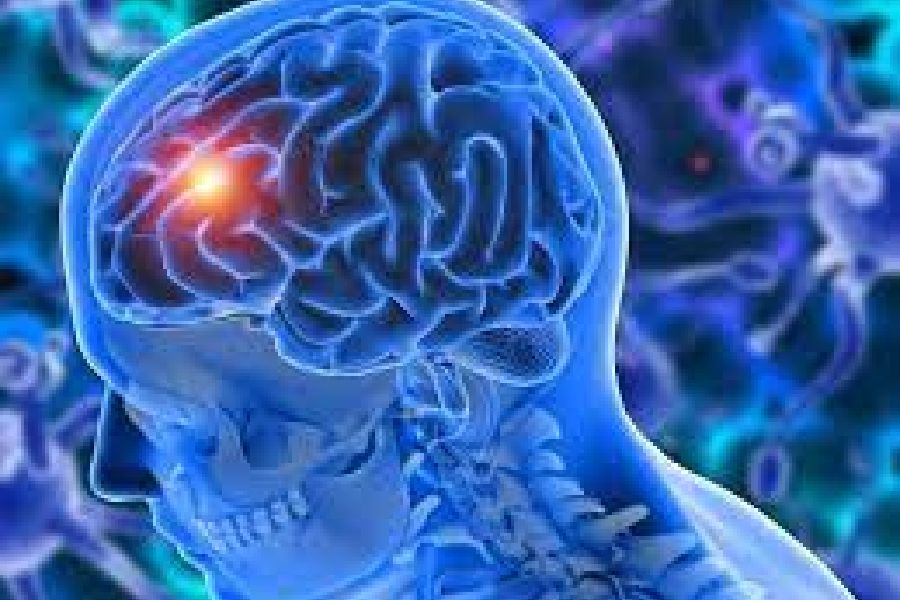- Brain tumours don’t necessarily cause headache.
- Brain tumours can develop in individuals of all age groups.
- Brain tumours are not contagious.
An awareness programme on Thursday saw doctors bust some myths about brain tumours.
“The biggest myth about a brain tumour is that it will inevitably cause headache. That is not true. Ninety per cent of brain tumour patients do not feel pain in the head for a long time. When they do, it is in an advanced stage,” neurosurgeon Sandip Chatterjee said at the programme at Park Clinic.
June 8 is observed globally as World Brain Tumour Day.
In the three decades between 1990 and 2020, the incidence of brain tumours has risen by 90 per cent across the globe, said Chatterjee, academic coordinator of neurosurgery, Park Neurosciences Service, Park Clinic.
The rate of rise is lower in India than it is in the West, he said.
The rise in pollution levels and the changing nature of work that leads to severe sleep deprivation are linked to the rise in the cases of brain tumour, said Chatterjee.
In 2020, brain tumour was ranked as the 10th most common kind of tumour among Indians. The International Association of Cancer Registries has said over 28,000 brain tumour cases are reported in India annually.
Nilay Biswas, consultant neurosurgeon at Park Clinic, said there is no infective cause of brain tumour. “Caregivers ask us whether they are at risk while attending to a brain tumour patient. Brain tumour is not caused by any infection and it is not contagious,” he said.
Biswas pointed to another common perception — brain tumour is a “disease of senior citizens”.
“That is not the case. There is no age group that is immune to brain tumour,” he said.
There is a raging debate on whether radiation from cellphones can cause brain tumours.
Doctors at the programme said there is no credible research that has established a link between the two.
“But electromagnetic radiation has carcinogenic potential. It is always advisable to use earphones while talking on a mobile, or talk on the speaker mode,” said Biswas.
More than one doctor stressed that brain tumour is not the end of life.
Brain tumours can be classified into two types — benign and malignant. Benign brain tumours can often be completely cured by surgery, they said.
The treatment for malignant tumours has evolved a lot, they said.
Brain tumour survivors treated at Park Clinic and their parents shared their experiences on Thursday.
One of the survivors, an 11-year-boy from South 24-Parganas, was born with a brain tumour.
“He was partially paralysed. His head was unusually large for his body. After an MRI scan revealed the tumour, we came here. A surgery was done when he was 10 months old. Now, he is able to lead a normal life,” said Prashanta Biswas, the boy’s father.
Another survivor, Sampriti Sen, suffered from germinoma, a type of germ cell tumor that is most often found in the brain and is usually malignant.
Sen was detected with the tumour in December 2013 and was operated upon at the clinic in February 2014. Following the surgery, she needed multiple chemotherapy sessions.
After clearing the higher secondary exams with 65 per cent marks, Sen did a nursing course. In June last year, she joined Park Clinic as a nurse.
“I thank the doctors for giving her a second life,” her mother Mayna said.
Atanu Raha, former principal chief conservator of forests in Bengal, was among the survivors who spoke at the event.
“Brain tumour is not the end of life. I resumed work after surgery and rose up to become the top forest official of the state,” said Raha.
